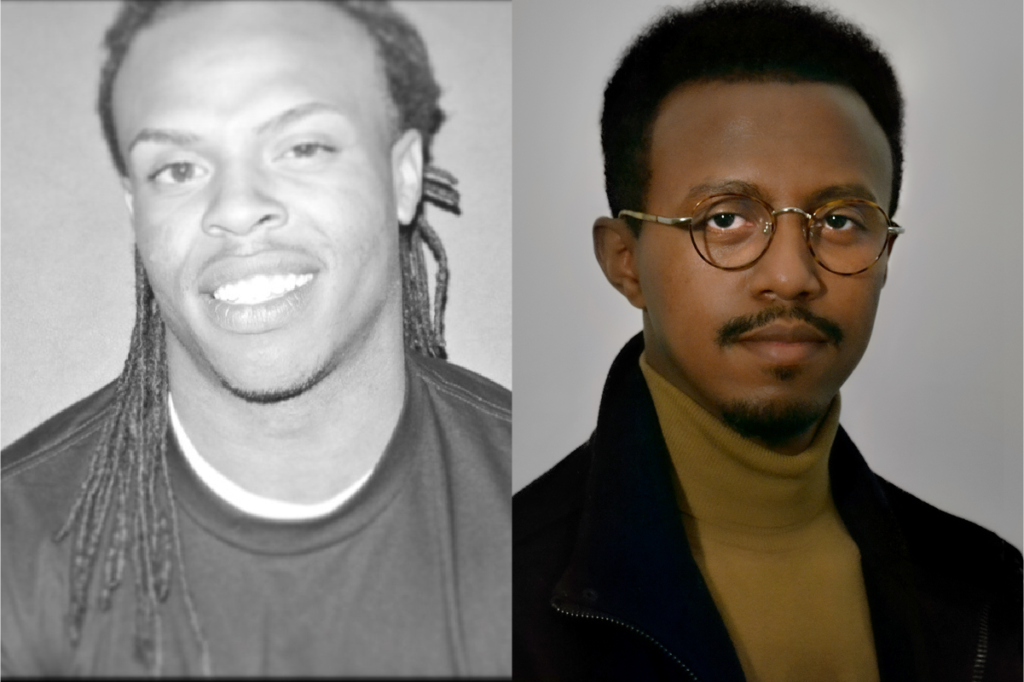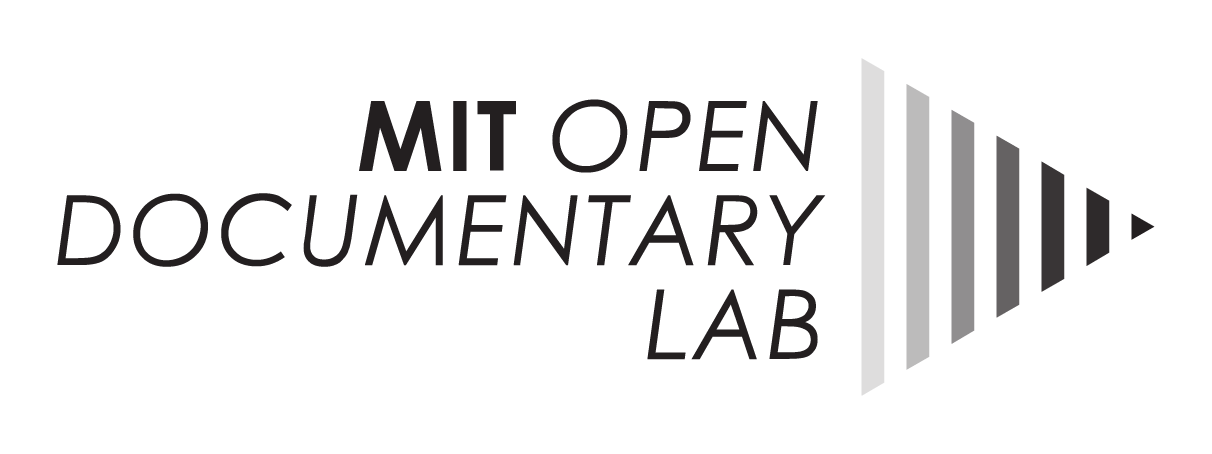13 Oct Meet Damien McDuffie and Kidus Hailesilassie: MIT & Black Public Media’s Fall 2022 Joint Fellowship Recipients

Headshots of new fellows Damien McDuffie and Kidus Hailesilassie.
Cambridge, Mass. (Oct. 13, 2022) — Damien McDuffie and Kidus Hailesilassie have been selected as the third cohort of recipients of the MIT & Black Public Media Visiting Artist Residency. This fellowship, hosted by the MIT Open Documentary Lab (ODL) and sponsored by the MIT Center for Art, Science, and Technology (CAST), is designed to support Black artists in researching and developing an emerging-tech nonfiction project.
“When new communications technologies emerge, it’s an opportunity to change who has access and what stories are told,” said Sarah Wolozin, director of the Open Documentary Lab. “We are thrilled to partner with Black Public Media and MIT CAST for the third year to offer fellowships to two talented Black creatives who are exploring emerging technologies and non-fiction storytelling.”
Damien McDuffie is a creative technologist, digital archivist, and augmented reality (AR) artist and developer from Oakland, Calif. He is the founder of Black Terminus AR, a camera app and augmented-reality art studio that helps bring archives to life. His work aims to “keep redlining out of the metaverse” by developing and inspiring the next generation of Black creative technologists to use culture and art as a way into creative tech.
“I am most excited to be influenced by so many dynamic creators…,” said McDuffie. “I am also looking forward to seeing ways that I can integrate some of these innovations into my Black Terminus AR app and align them with my mission to make augmented reality accessible.”
Kidus Hailesilassie’s design merges the boundaries between spatial practice and futures informed by Africa and its diasporic conditions. With a background in architecture and speculative world-building, his works focus on the hybrid nature of reimagining transcontinental archives to form counternarratives of Black consciousness.
“I am drawn to the [Open Documentary] Lab as it creates space for dialogues that critically engage with projects that use emerging technologies as a tool for immersive storytelling,” Hailesilassie said. “The ODL community is the most exciting part of the fellowship because of the broad spectrum of projects and experiences everyone brings to the Lab.”
Launched in 2020, the joint fellowship connects innovative Black creatives to two invaluable networks: ODL’s community of artists, journalists, documentarians and technologists who are investigating the use of new technologies and co-creative processes and BPM’s community of creative technologists, filmmakers and artists. The program is part of Black Public Media’s BPMPlus Initiative which focuses on reducing barriers to entry for Black creatives and increasing their participation in emerging-tech storytelling. McDuffie and Hailesilassie will be participating in the program virtually this academic year.
“CAST is enthusiastic about supporting this invaluable partnership which enables the distinctive creative voices in the Black Public Media community to experiment with new technologies and reach broader audiences,” said Leila W. Kinney, Executive Director of Arts Initiatives at MIT CAST.
During the fellowship, McDuffie will be working on The AR Museum for the People, a mobile augmented-reality walking tour and immersive exhibition for Black art. He will begin by developing his own tour, highlighting mural art about the Black Panther Party in and around his hometown of Oakland. Working with the Black Panther Party’s alumni networks, McDuffie will be focused on creating immersive experiences that explore script-, history-, and personality-driven narratives centered on Black history.
Hailesilassie will be working on The Culture Archive, an immersive AI-generated archive that comprises languages from the continent of Africa and its diaspora. It is an artistic expression — a platform for think-tank and dialogue recentering the writing tapestry from the continent of Africa and its diaspora.
“Our joint residency with Open Doc Lab has been a great conduit for BPM artists and filmmakers to meet fellow creative technologists,” said Lisa Osborne, Black Public Media’s Director of Emerging Media Initiatives. “Over the last two years, they have been able to make connections with makers creating new tools and experimenting with new forms of nonfiction storytelling.”
About Black Public Media
Black Public Media supports the development of visionary content creators and distributes stories about the global Black experience to inspire a more equitable and inclusive future. For more information, visit blackpublicmedia.org.
About MIT Open Documentary Lab
Drawing on MIT’s legacy of media innovation and its deep commitment to open and accessible information, the MIT Open Documentary Lab brings storytellers, technologists, and scholars together to explore new documentary forms with a particular focus on collaborative, interactive and immersive storytelling. OpenDocLab is based in Cambridge, Mass.
About MIT’s Center for Art, Science & Technology
A major cross-school initiative, the MIT Center for Art, Science & Technology (CAST) creates new opportunities for art, science and technology to thrive as interrelated, mutually-informing modes of exploration, knowledge and discovery. CAST’s multidisciplinary platform presents performing and visual arts programs, supports research projects for artists working with science and engineering labs and sponsors symposia, classes, workshops, design studios, lectures and publications. The visiting artists program is a cornerstone of CAST’s activities, which encourages cross-fertilization among disciplines and intensive interaction with MIT’s faculty, students and researchers. CAST is based in Cambridge, Mass.



